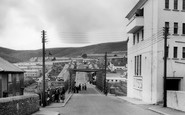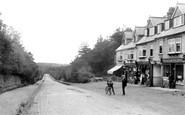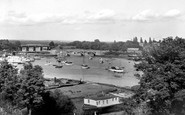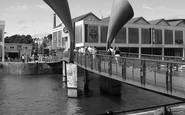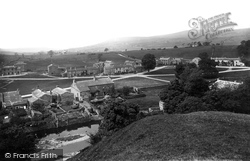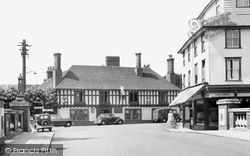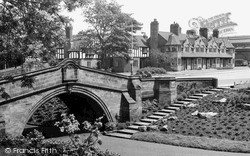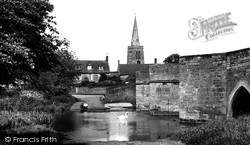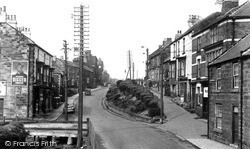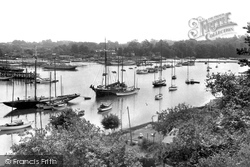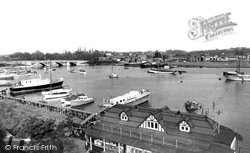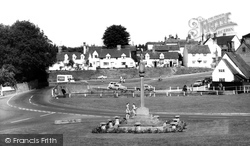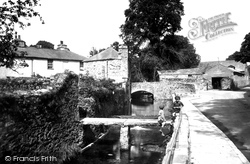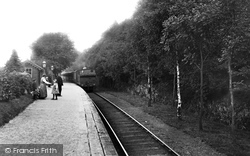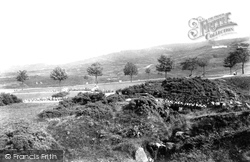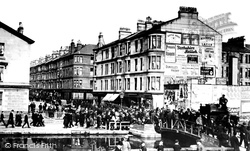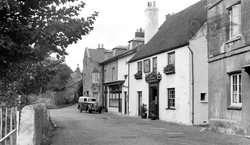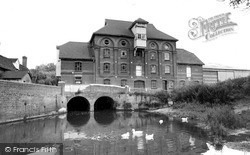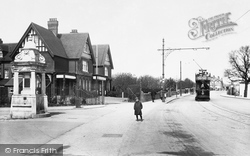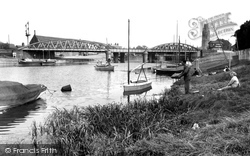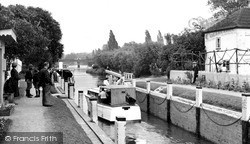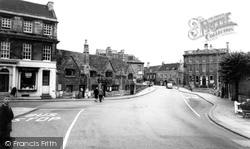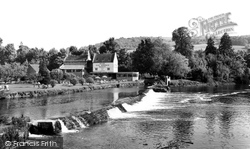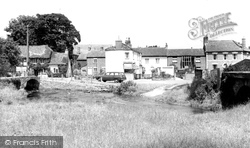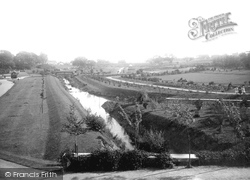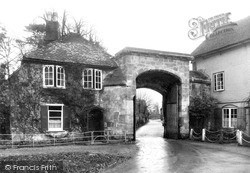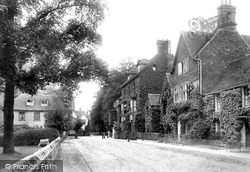Places
17 places found.
Those places high-lighted have photos. All locations may have maps, books and memories.
- Bridge End, Oxfordshire
- Bridge End, Lincolnshire
- Bridge End, Essex
- Bridge End, Bedfordshire
- Bridge End, Clwyd
- Bridge End, Warwickshire
- Bridge End, Surrey
- Bridge End, Durham (near Frosterley)
- Bridge End, Northumberland (near Hexham)
- Bridge End, Hereford & Worcester (near Tirley)
- Bridge End, Hereford & Worcester (near Bosbury)
- Bridge End, Shetland Islands
- Bridge End, Cumbria (near Carlisle)
- Bridge End, Northumberland (near Hexham)
- Bridge End, Devon (near Kingsbridge)
- Bridge End, Devon (near Sidmouth)
- West End, Yorkshire (near Pateley Bridge)
Photos
40 photos found. Showing results 981 to 40.
Maps
520 maps found.
Books
2 books found. Showing results 1,177 to 2.
Memories
1,928 memories found. Showing results 491 to 500.
A Lifehood Of Memories During The 1950s
orn in 1942 at 23 Park Avenue, Northfleet, I went to Dover Road School then Colyer Road Secondary School. Churchill's dairy used to be opposite Colyer Road School and allotments where we had a plot. The ...Read more
A memory of Northfleet by
Samples Yard
I used to live a few doors from auld Jimmy Sample and his wife Carrie, his son John was married to June and they lived in Francis Terrace. They had their rag and bone yard down the Winnin, anyway I would spend summer nights, weekends and ...Read more
A memory of Newburn in 1955 by
The Sales
It was about 1956. John Sample had started to change with the times and bought himself a pick up truck, him, 'Auld Jimmy' and me went to the horse sales at Gateshead just over the bridge, and I cannot for the life of me remember if it was ...Read more
A memory of Newburn in 1956 by
My Childhood In Astmoor
I lived in Astmoor with my grandparents. My grandma sold sweets, pop and cigarettes. I went to Halton School and walked down Astmoor Lane which we called Summer Lane. Grandad worked at Astmoor tannery. We lived next to Ivy ...Read more
A memory of Astmoor in 1956 by
My Early Days
I remember when I used to live in Gilfach Goch, Mount Pleasant, and the old settlement in the High Street. I used to perform puppet shows in the front room and charge one penny entrance fee, I spent the money in Leslie Belben's ...Read more
A memory of Gilfach Goch in 1952 by
Deepcut Village
This image is actually taken from Deepcut Bridge Road, around the junction of Woodend Road, with the barracks away to the left. Blackdown Road is a few hundred yards behind the photographer here. The shops in view are now a hairdressers, and fast food places!
A memory of Frimley
Pea Shooter And Buses
It was about 1953 when we discovered pluffers and ca caws. The pluffer was a device we used for a pea-shooter. This was a straight stem from a weed and it was about an inch or so in diameter, hollow through the centre and ...Read more
A memory of Newburn in 1953 by
The Local Dances And Playing Pool
In the mid 1950s to early 1960s there were local dance halls, one at Newburn which was down Station Road, take a left towards the bridge and it was just there on the left side opposite the level crossings near ...Read more
A memory of Newburn in 1955 by
Bursledon Bridge
This picture is of the two Bursledon bridges over the River Hamble - the A27 road bridge in the foreground and the rail bridge behind it. Sarisbury Green is further up to the right on the A27 at the top of the hill. The photo is ...Read more
A memory of Bursledon by
Pero's Bridge
The warehousing which dominated Prince Street, Narrow Quay and Prince's Wharf have been found new uses, largely cultural and media-based. The industry on Canon's'Marsh has gone, replaced by the new industry of tourism. With the ...Read more
A memory of Bristol by
Captions
1,770 captions found. Showing results 1,177 to 1,200.
The old Roman road drops steeply down onto the green, via a bridge over the short river from Semer Water, two miles away.
This road takes its name from the bridge over the River Colne, visible in the foreground of the picture.
Dell Bridge was built in 1894 to span what was once the upper reaches of Dell Creek, a former tidal creek that once divided the village in half.
This view looks across the River Ise towards the parish church with its graceful 15th-century tower and tall recessed spire.
This was remodelled by Sir Robert Dundas of Loftus Hall, who took a keen personal interest in restoring and developing Loftus.
Until the beginning of the 19th century the only crossing of the Hamble was by ferry.The first structure was a toll bridge; today the river is spanned by various busy roads and a motorway—a far
Until the beginning of the 19th century the only crossing of the Hamble was by ferry.The first structure was a toll bridge; today the river is spanned by various busy roads and a motorway—a far
This has its pros and cons: the narrow bridge looks quaint, but it has to take up to 500 coachloads of visitors a year. And there is no car-park.
The River Ashburn rises high on Dartmoor and empties into the River Dart near Buckfastleigh, gurgling through Ashburton as it does so.
The locomotive comes tender first into Newby Bridge station, where it is awaited by the station-master.
This captivating view was taken looking towards the top of the 1,320-feet-high Rombalds Moor and shows White Wells at top right.
In 1882, the American firm of Singers opened a sewing-machine factory, bringing yet more jobs and more people to the area. Clydebank became a burgh in 1886.
Wootton Bridge has many connections with the sea, as the name of its inn suggests. In the churchyard lies the grave of the Victorian admiral Sir John Baird, who died in 1908.
The central section of the brick watermill was built in 1884, and the wings were added in 1892. The road is carried over the millrace by an 18th-century bridge.
A much changed view: this shows the old Caversham Hotel on the Reading approaches to Caversham Bridge, with the electric tram No.9 at its terminus.
The bridge, built in 1848, carried the Great Northern Railway main line from Grimsby to London King's Cross (via Peterborough), but since the Beeching cuts it now only carries the Skegness to Nottingham
During the summer months the small shop, which he has just visited, does a flourishing trade selling teas, ices and postcards, The bridge that carries the Twyford to Henley railway line over the Thames
In his 'Topographical Collections' of 1659-70, John Aubrey wrote: 'Here is a strong and handsome bridge in the middest of which is a little chapell as at Bathe, for Masse'.
The mill is actially on the Bathampton or south bank of the Avon, beyond the toll bridge. In this view it has been converted into the Weir Tea Garden Hotel, and the meadow turned into a tea lawn.
Two bridges and a ford cross the stream that flows past the Blue Anchor Inn, which stands at the centre of the village.
The three-mile trip along the Dee to Eccleston Ferry was, and remains, a popular summer season excursion. Here we have a small paddle steamer on the Eccleston Ferry/Eaton Hall run.
Often referred to by locals as the 'Flower Gardens' here is the same scene some 35 years after that shown in 38714 (above) and a new concrete bridge is in place.
The Gate leads directly to Harnham Bridge over the River Avon.
The Gate leads directly to Harnham Bridge over the River Avon. This was an important medieval trading entrance to the city for traders and travellers from the west.
Places (17)
Photos (40)
Memories (1928)
Books (2)
Maps (520)



